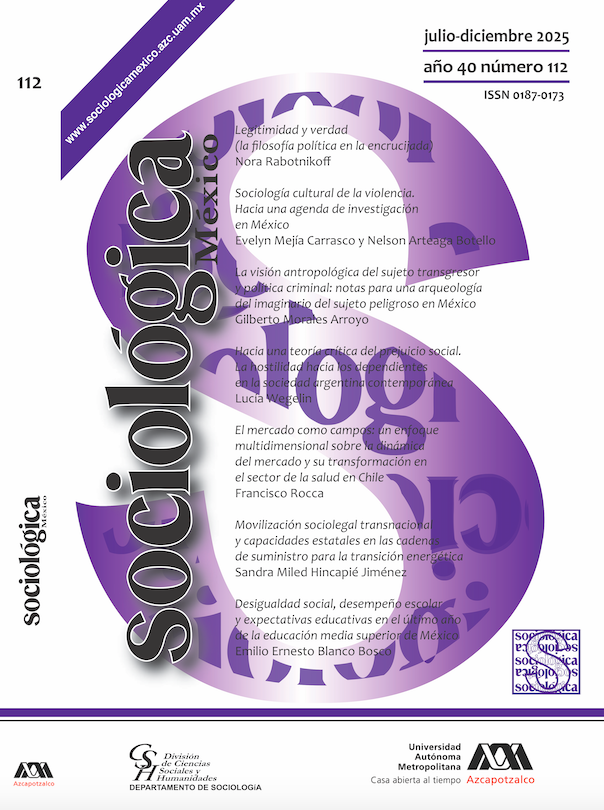Movilización sociolegal transnacional y capacidades estatales en las cadenas de suministro para la transición energética
DOI:
https://doi.org/10.24275/Abstract
In the geopolitical context of the transformation of global supply and value chains, energy security, and the revision of the United States-MexicoCanada Free Trade Agreement (USMCA), this article examines the Labor Rapid Response Mechanism (LRRM) of this agreement as an institutional instrument for resolving transnational labor disputes. It argues that collective action and transnational sociolegal mobilization for the activation of the LRRM enabled the generation of state capacities for the intervention and resolution of conflicts associated especially with the supply and value chains of the automotive industry, a pillar of the new reshoring chains. The effectiveness of mediation between state, union, and business actors contributed to the recognition of labor rights and contributed to the productivity and competitiveness of the integrated North American market.
Downloads
Published
Issue
Section
License
Copyright (c) 2025 SANDRA MILED HINCAPIE JIMENEZ

This work is licensed under a Creative Commons Attribution-NonCommercial-ShareAlike 4.0 International License.
Los autores/as que publiquen en esta revista aceptan las siguientes condiciones:
- Los autores/as conservan los derechos de autor y ceden a la revista el derecho de la primera publicación, con el trabajo registrado con la licencia de atribución de Creative Commons, que permite a terceros utilizar lo publicado siempre que mencionen la autoría del trabajo y a la primera publicación en esta revista.
- Los autores/as pueden realizar otros acuerdos contractuales independientes y adicionales para la distribución no exclusiva de la versión del artículo publicado en esta revista (p. ej., incluirlo en un repositorio institucional o publicarlo en un libro) siempre que indiquen claramente que el trabajo se publicó por primera vez en esta revista.
- Los derechos patrimoniales de la obra son transferidos de manera total y sin limitación alguna a la Universidad Autónoma Metropolitana, por el tiempo que establezca la Ley Nacional e Internacional y sin prejuicio de respeto a los derechos de autoría moral.



